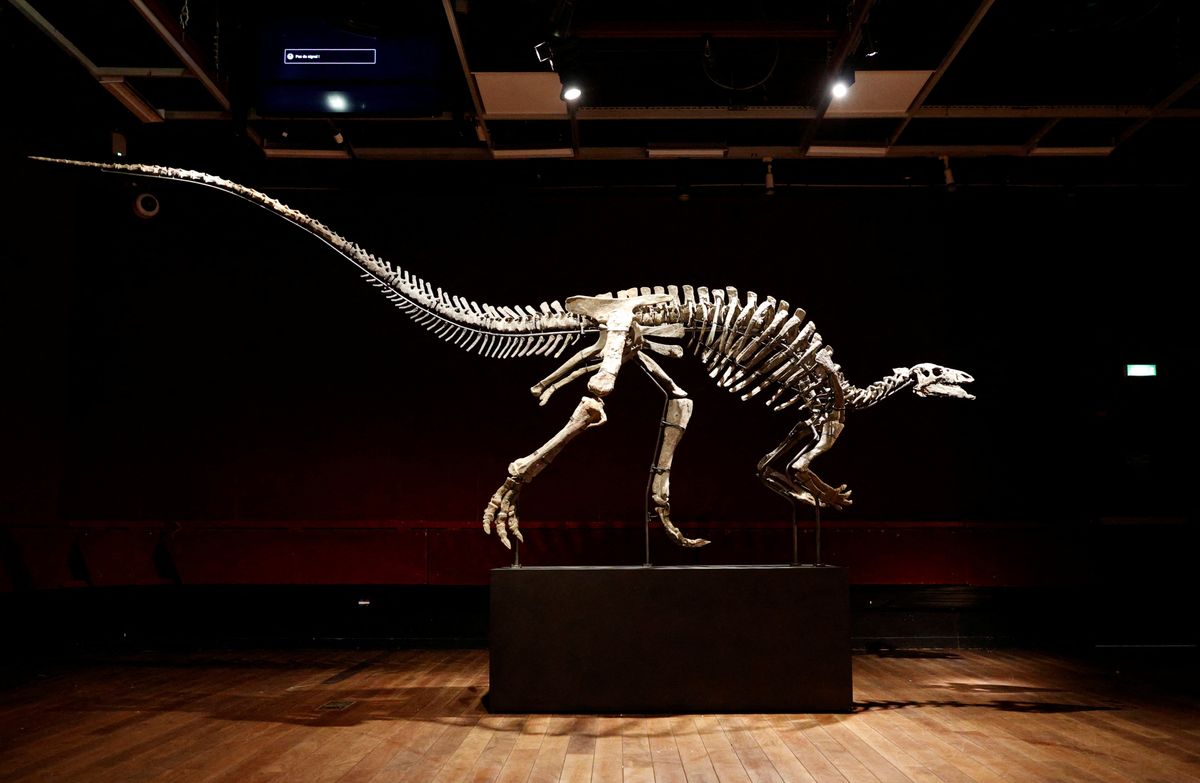France will auction off a rare dinosaur skeleton
You know, because nothing pulls the room together like a giant dinosaur skeleton.

A few minutes every morning is all you need.
Stay up to date on the world's Headlines and Human Stories. It's fun, it's factual, it's fluff-free.
When it comes to interesting, rare and well-preserved dinosaur skeletons and fossils, museums and scientific institutions can’t always get their hands on the best finds. That’s because it’s actually very legal for dinosaur skeletons to be sold to private organizations and (very) rich people. Last year, in New York City, Sotheby’s auctioned off a 76 million-year-old dino skeleton for US$6.1 million. Another 2022 auction saw a dinosaur claimed for US$12.4 million. This April, a T. rex skeleton was auctioned off in Europe for the first time ever, raking in over US$6 million in Zurich.
You know, because nothing pulls the room together like a giant dinosaur skeleton.
This coming October, another cool dino is being auctioned off, this time in Paris. Known as “Barry,” this set of bones used to belong to a Camptosaurus that lived about 150 million years ago, during the late Jurassic period. Barry was first discovered in the US back in the 90s, and he was first restored in 2000 by paleontologist Barry James, who it’s named after. Last year, the Italian laboratory Zoic got Barry and did more restoration on his skeleton. But, it turns out, Barry was in pretty good shape even before going through expert restoration.
"It is an extremely well-preserved specimen, which is quite rare," said Alexandre Giquello, who works with Paris auction house Hotel Drouot, which will be selling Barry. "To take the example of its skull, the skull is complete at 90% and the rest of the dinosaur (skeleton) is complete at 80%.”
When Barry goes up for auction on October 20, it’s expected to pull in over US$1 million.
While it’s not super common for private dinosaur sales or auctions to take place, they’ve been known to happen a few times a year. And a big part of the science community isn’t super psyched about the idea of these specimens going into private hands in this way because of their public value.
“When they go into private hands they may disappear, and we may never be able to study them as scientists,” explains Lawrence Witmer, a paleontologist and professor at Ohio University.




Comments ()